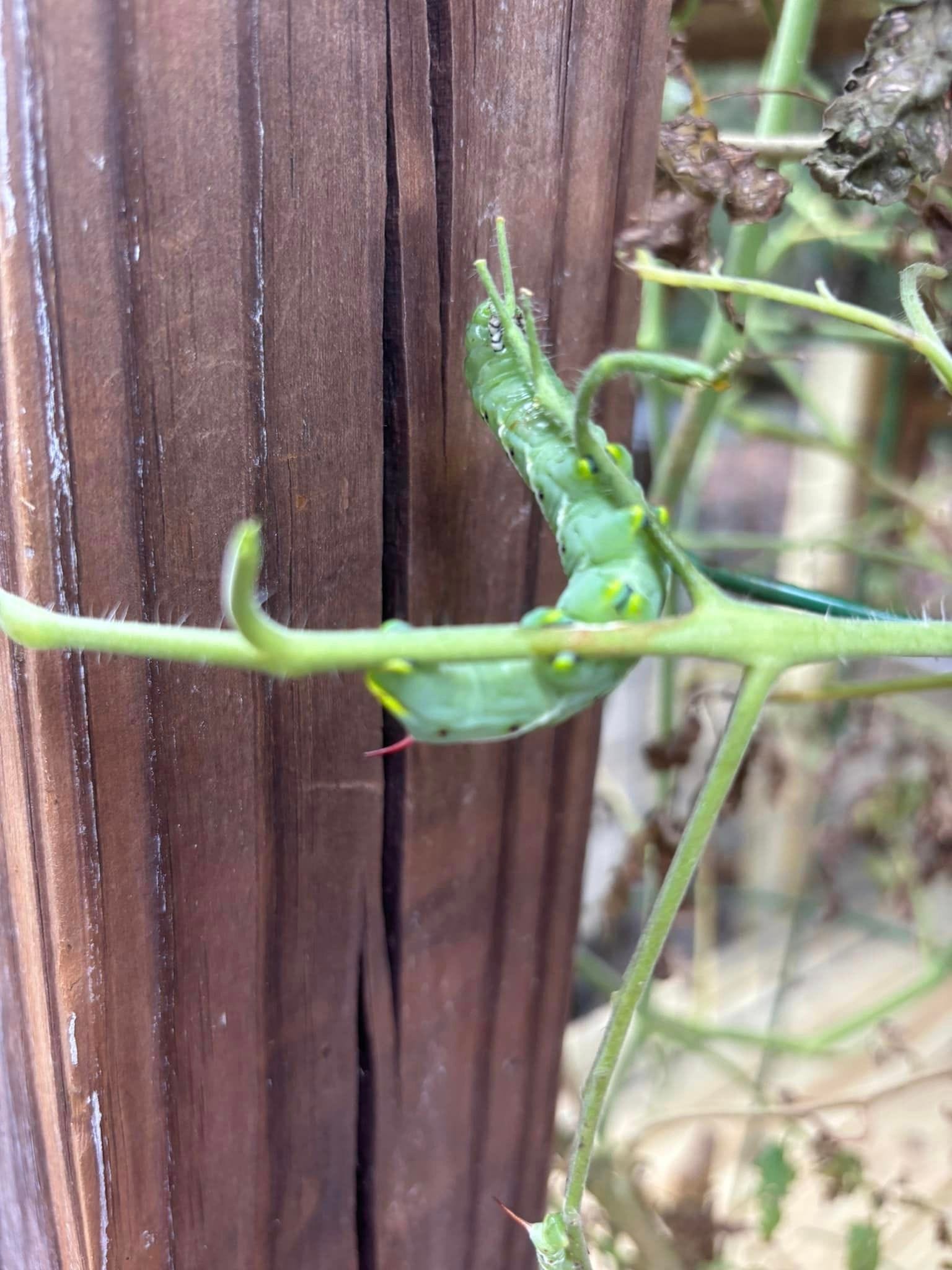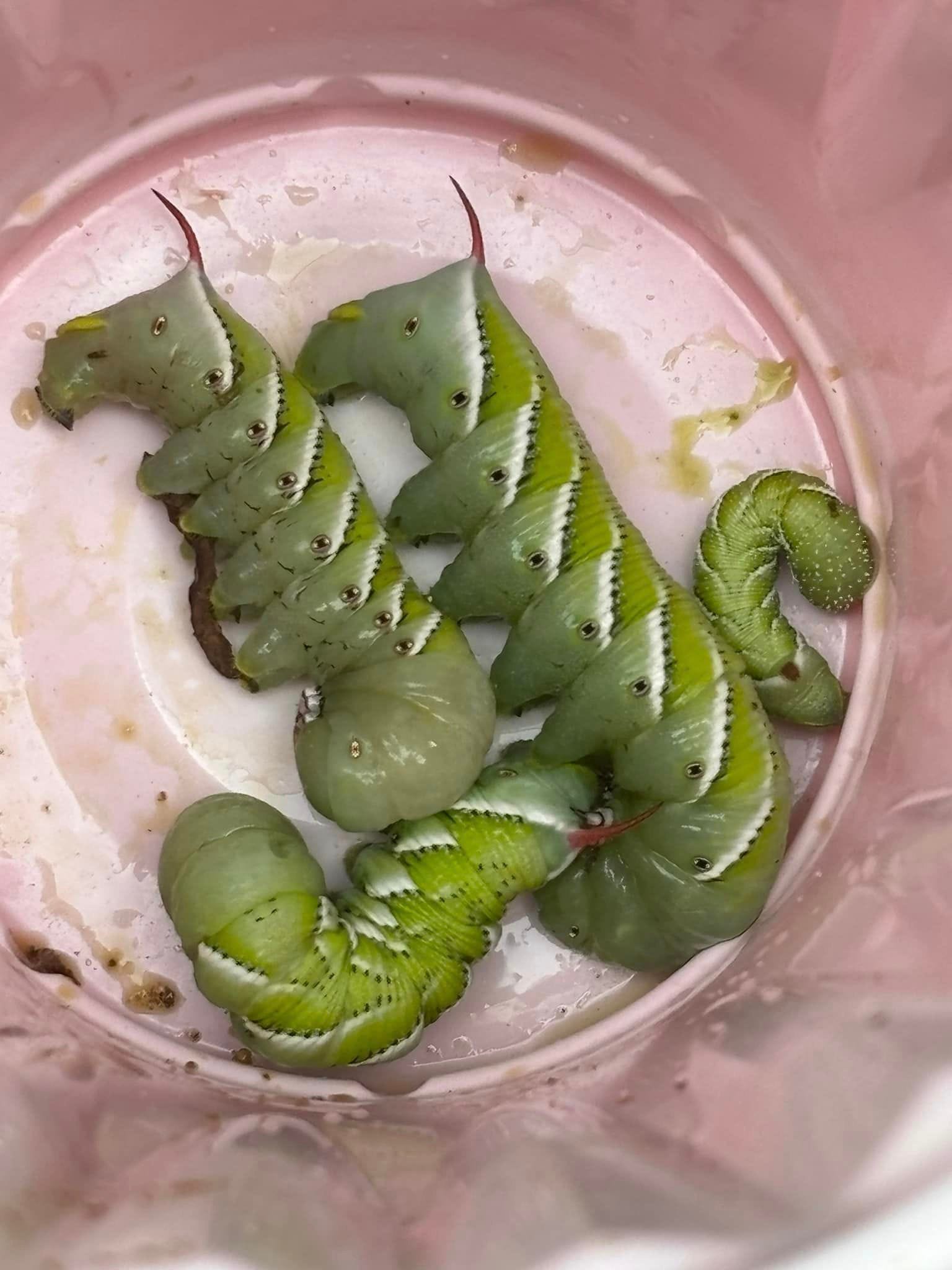
Few things are more disheartening for gardeners than discovering a healthy tomato or pepper plant suddenly stripped of its leaves, its tender fruit punctured and gnawed. The culprit might be hornworms. In this article, I will talk about how to get rid of these hornworms in your garden.
I have heard a lot of times people complaining "Hornworms are destroying my garden, they are eating all my tomatoes" So I thought this post might help a lot of gardeners.
Hornworms are the larvae of sphinx moths, sometimes called "hummingbird moths" as they fly in a similar pattern. They mostly attack tomato plants, eggplants, and peppers.

The best natural way to remove hornworms from your garden
Hornworms can not move fast. They are slow caterpillars. So you can easily apply the old-fashioned handpicking method. If you're vigilant, you can stop the destruction before it gets out of control. Do not forget to wear gloves.
No need to find them in the dark. You can look for it in the early morning or afternoon. They can also hide under the leaves so do not forget to check under the leaves as well. Take a bucket with soap and water and then put the hornworms in the bucket by handpicking. (If you don't want to harm them you can simply throw them away)
Apply BT (Bacillus thuringiensis)
If you are not comfortable with the first handpicking method or if your garden is full of hornworms then you can go for this BT method.
Bacillus thuringiensis (BT) is a natural bacterium that can be sprayed on plants. When hornworms consume leaves treated with BT, the bacteria disrupt their digestive systems. As a result, they will stop eating and die.
How to Use BT:
- Mix and apply according to package instructions.
- Spray it in the evening when the sun isn’t too intense to prevent breakdown from UV rays.
- Make sure to cover both sides of the leaves where hornworms feed.
If you search over the internet, you can find a few other solutions but I am not going to talk about those as they do not seem effective in my experience.
Some of those methods are applying Diatomaceous Earth (DE) and neem oil.
If you have tried everything but nothing worked, you need to go for chemical insecticides. Products that contain spinosad or pyrethrin, will be most effective. But you need to keep in mind that these types of insecticides can also harm pollinators and beneficial insects as well.
Tips from my side:
- Rotate Crops: Avoid planting tomatoes and peppers (or any other infected plants) in the same spot every year. If you rotate your crop planting calendar then the lifecycle of the hornworms will also be affected and they will erase eventually.
- Inspect Regularly: Check your plants often, especially during peak growing seasons. Try to catch them as soon as possible, because if you show laziness in this, the number of hornworms will increase and it will be difficult for you to control.
